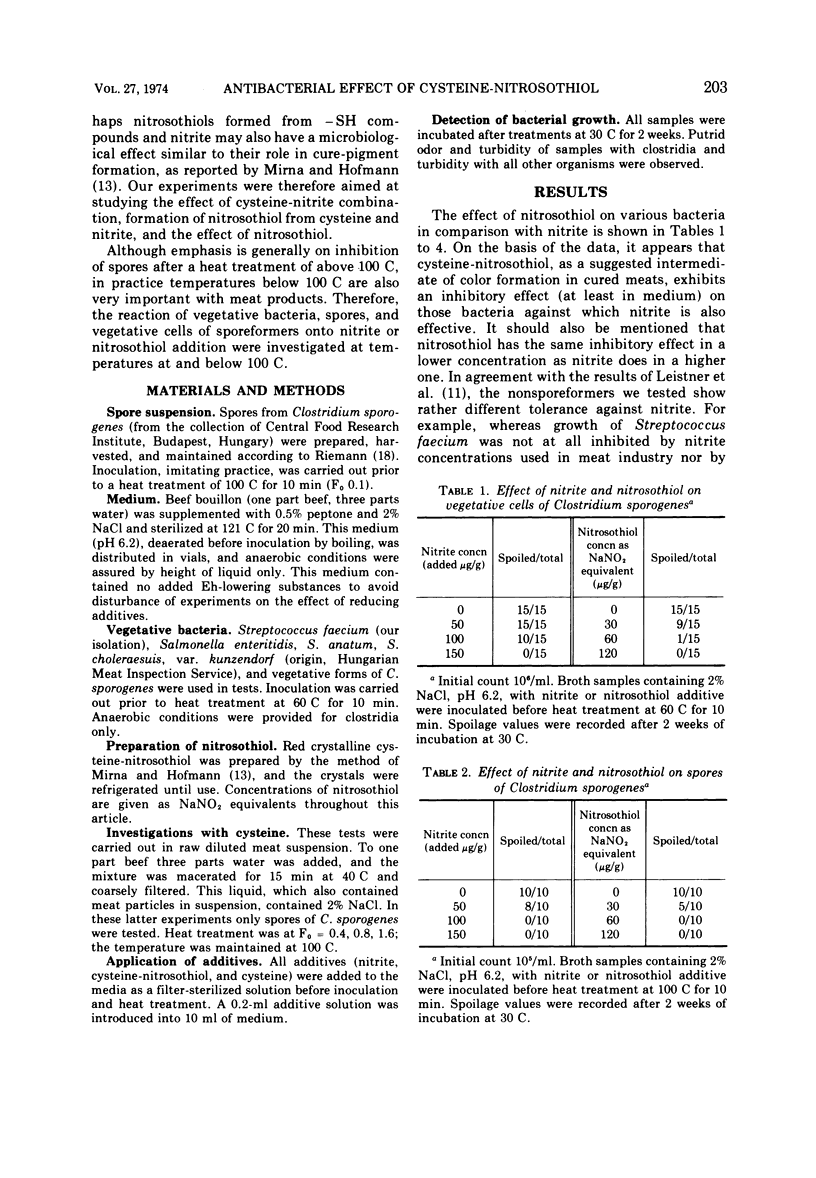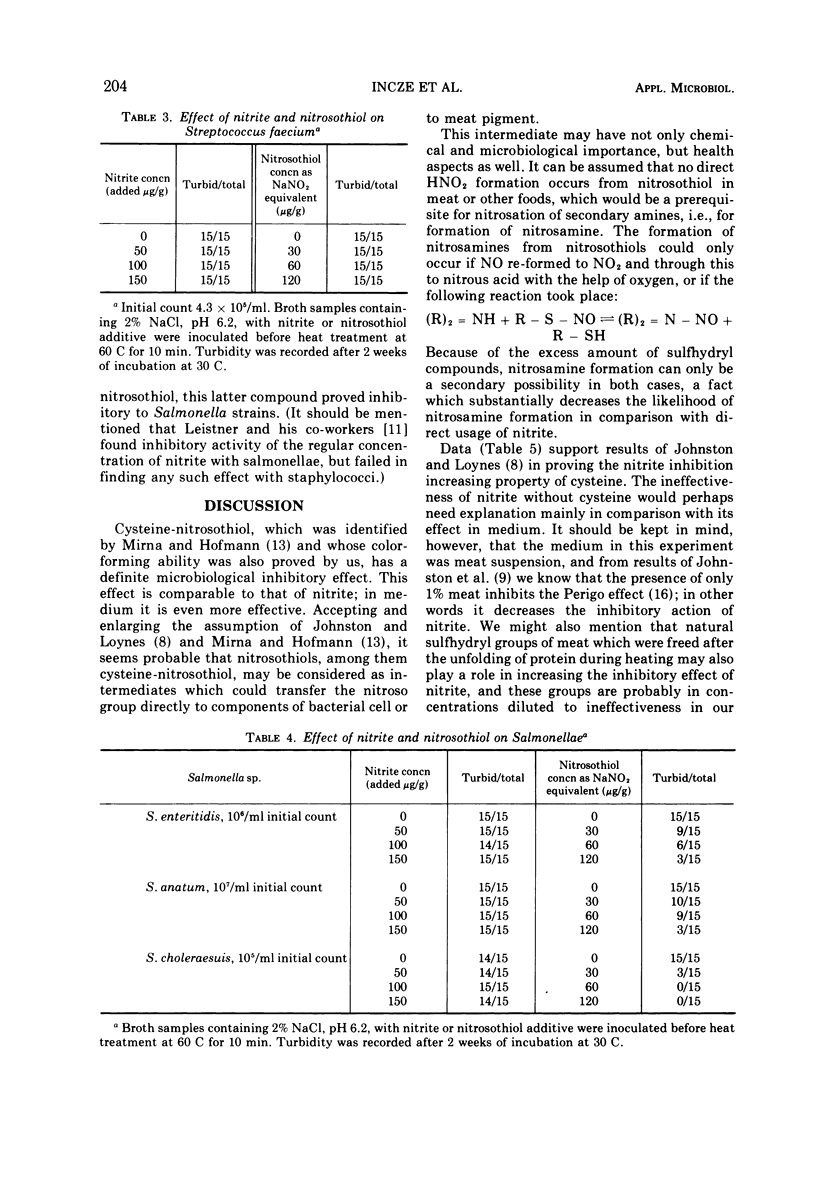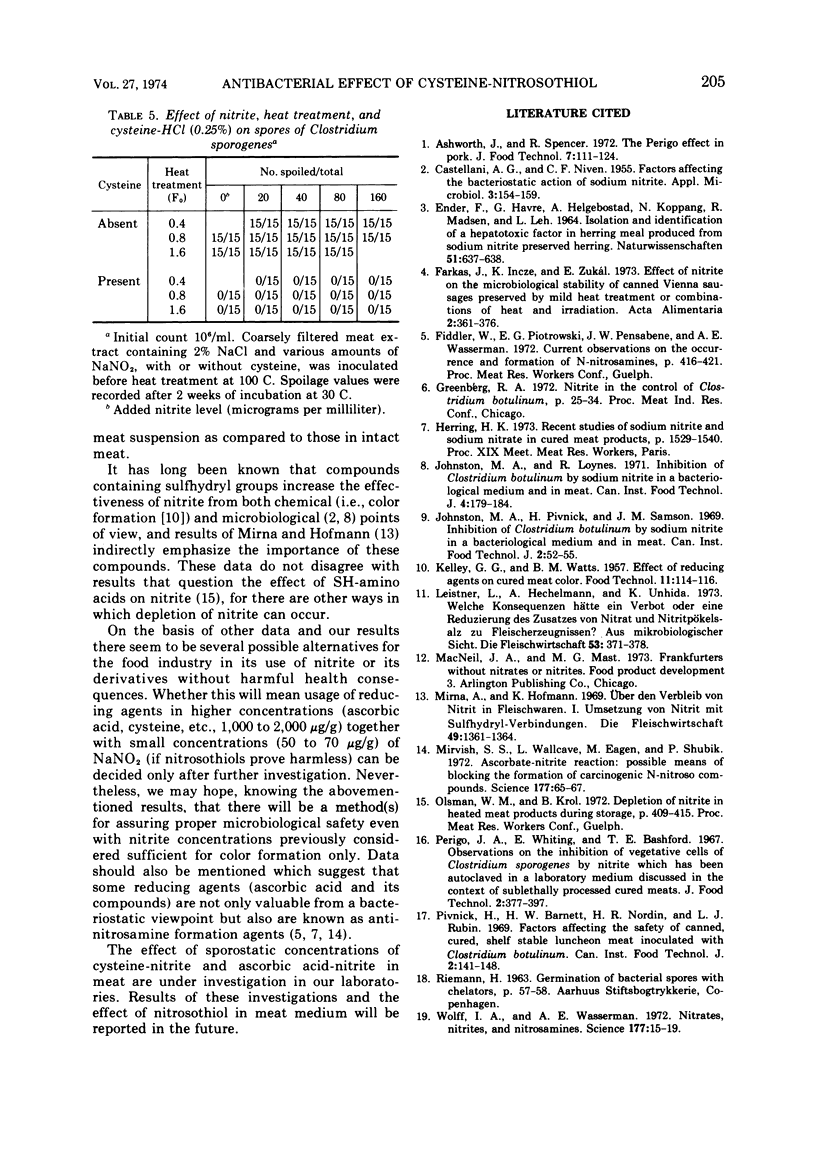Abstract
The postulated intermediate of nitrite-myoglobin reaction, cysteine-nitrosothiol, was prepared and its antibacterial effect was tested on Salmonella strains, Streptococcus faecium, and spores and vegetative cells of Clostridium sporogenes. Cysteine-nitrosothiol showed a higher inhibitory effect than nitrite. Preliminary results on the effect of simultaneous use of nitrite and cysteine on Clostridium sporogenes spores were also presented.
Full text
PDF



Selected References
These references are in PubMed. This may not be the complete list of references from this article.
- CASTELLANI A. G., NIVEN C. F., Jr Factors affecting the bacteriostatic action of sodium nitrite. Appl Microbiol. 1955 May;3(3):154–159. doi: 10.1128/am.3.3.154-159.1955. [DOI] [PMC free article] [PubMed] [Google Scholar]
- Mirvish S. S., Wallcave L., Eagen M., Shubik P. Ascorbate-nitrite reaction: possible means of blocking the formation of carcinogenic N-nitroso compounds. Science. 1972 Jul 7;177(4043):65–68. doi: 10.1126/science.177.4043.65. [DOI] [PubMed] [Google Scholar]
- Wolff I. A., Wasserman A. E. Nitrates, nitrites, and nitrosamines. Science. 1972 Jul 7;177(4043):15–19. doi: 10.1126/science.177.4043.15. [DOI] [PubMed] [Google Scholar]


